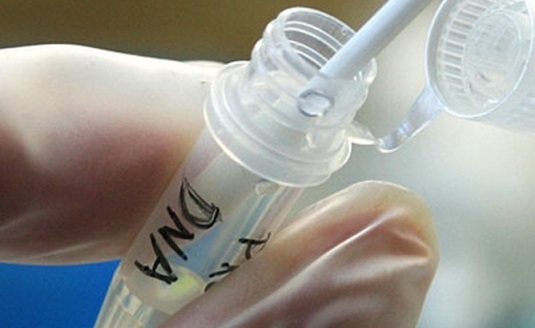
The quality of forensic science work in England and Wales is at risk and could threaten the integrity of the criminal justice system, the regulator has said.
Forensic Science Regulator Gillian Tully said some police forces were not committed to meeting the required standards, and there was a significant risk of DNA contamination.
She wants statutory powers to enforce standards “as soon as possible”.
The National Police Chiefs Council said it had secured extra funding.
The government’s Forensic Science Service was closed in 2012. Since the closure, forensic science work has been carried out by private firms and police laboratories
This is the third time in two years that serious concerns have been raised about the work, with other critical reports from the National Audit Office and MPs on the Science and Technology Committee.
In her second annual report, Dr Tully said the main challenge to achieving standards had been financial, and called on police forces and the Legal Aid Agency to make more funding available.
“Otherwise we will face the costs, both in criminal justice terms and financially, of quality failures and loss of confidence in forensic science.”
She cited “concerning” contamination-related issues in police custody and at Sexual Assault Referral Centres, which provide support for alleged victims of rape and sexual assault.
She said a rape investigation had been compromised after samples taken from an alleged victim were found to be contaminated with DNA from an unrelated case. An inquiry is under way.
She also referred to the case of Stephen Port – the serial killer guilty of murdering four young men by poisoning them with lethal doses of a date rape drug.
DNA testing had not taken place in the third murder case, that of Daniel Whitworth, as recommended by the pathologist, because police did not believe anyone else was involved.
She said: “Whilst there is no suggestion that forensic science was not conducted properly in this case, there is a question to answer regarding commissioning decisions, which has been referred to the regulator for consideration.”
She said there was a timetable for forensic science activities within policing to comply with the regulator’s code of practice.
But she said not all police forces were “fully committed” to reaching the required standards, with some failing to recognise the impact of failures in the area.
She also said few organisations would reach the standard for digital forensics – which covers communications data, like mobile phones and emails – by October 2017, as set out in the timetable.
“The standards are not an unachievable ‘gold-plated’ ideal – they are the minimum standards expected of any reliable forensic science,” she said.
Forensic science carried out by instruction from defence lawyers had also been under financial pressure because of the current legal aid funding, she said.
There was a risk that some forensic medical examiners being commissioned did not have the required level of training and qualification.
And there was a risk of incorrect classifications by investigators who classify firearms to establish whether they were illegal weapons, she said.
The government has committed to giving the regulator statutory powers to enforce standards by the end of this Parliament.
Dr Tully told BBC Radio 4’s Today programme that she had been calling for the powers “for some time”, but the process had been “very slow” and she wants them in place “as soon as possible”.
Debbie Simpson, the National Police Chiefs’ Council lead for forensic science, said the police were “committed” to improving standards and had secured more funding from the Police Transformation Fund.
Dr Tully’s report had highlighted “key priority areas” for the police, she said.
“Nationally, we will continue to work in partnership with forces, forensic service providers and the forensic regulator to deliver the forensic strategy and respond to the challenges faced by the service.”
The government has already launched a review of the internal governance of forensic science, said policing minister Brandon Lewis.
He said: “Controlling the quality of evidence is critical to reducing the risk of miscarriages of justice and criminal trials collapsing, as well as maintaining public confidence in the system.”
He said he fully supported the timetable the regulator had set out, and said this must be met by all organisations providing forensic services.
Source: bbc.co.uk






Be the first to comment